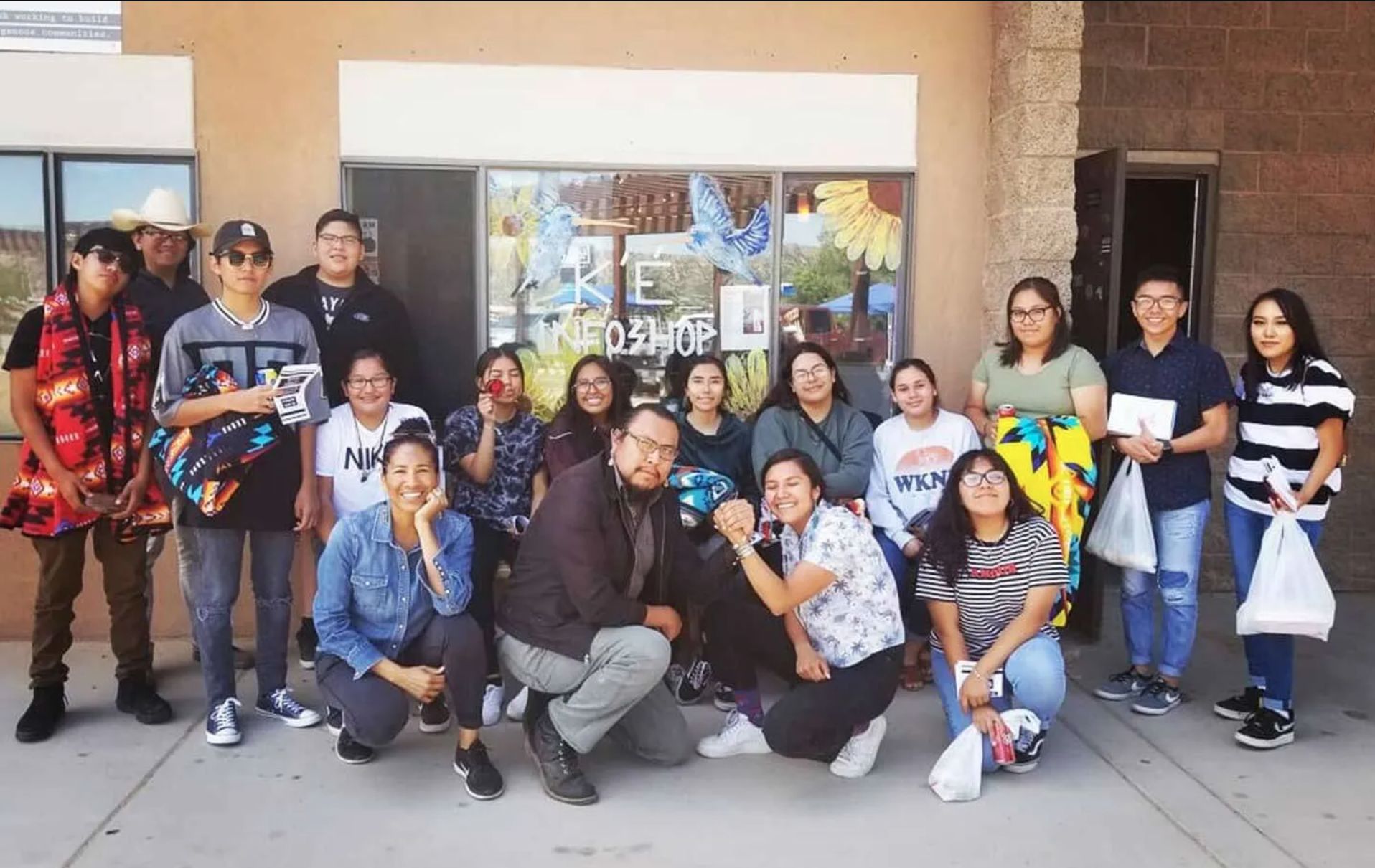Out of a vacant coffeeshop, the collective K’é Infoshop is dedicated to mutual aid on America’s largest reservation.
Cecilia Nowell, September 25, 2020
About an hour west of the New Mexico–Arizona border, an expanse of highway, sky, and sagebrush-spotted terrain ends in sandstone cliffs. The red-orange walls drop down into Canyon de Chelly, the only national park operated on land still owned by the Navajo Nation. This summer, as the per capita rate of coronavirus cases in the Navajo Nation surpassed New York state’s, Kauy Bahe, 19, found himself standing on the canyon’s edge as he delivered food to a Navajo elder and her family as part of a mutual aid effort.
“It was a beautiful spot,” Bahe (Navajo) said, describing the woman’s cornfield and hogan (a traditional Navajo home made of wood and packed soil) outside Del Muerto, Ariz. But “she was telling us about the struggles for water, about how they don’t have running water there and how they have to drive 30 minutes” to buy it.
Across the United States, activists have responded to the Covid-19 crisis with anarchist strategies, like mutual aid. In Window Rock, Ariz.—the seat of the Navajo Nation—the K’é Infoshop is one such group, and has been supplying elders, families, and the immunocompromised with food and medical supplies. But the Infoshop’s members, like Bahe, say their style of autonomous organizing has distinctly Navajo roots.


